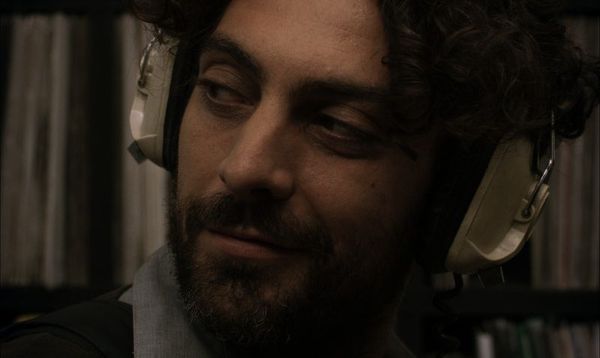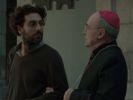Eye For Film >> Movies >> The Apostate (2015) Film Review
The Apostate
Reviewed by: Amber Wilkinson

The title may come as a conundrum to those in non-Catholic countries - I can't imagine its even common parlance down the Pope's Vatican City local - but fear not, as Federico Veiroj quickly explains the apostate situation through the plight of his bumbling, charming anti-hero Gonazalo (Álvaro Ogalla, playing a fictionalised version of himself).
He's a philosophy student whose ideas have somehow got in the way of his abillity to live his life in a functional fashion. He has a self-destructive lust for his cousin, an overbearing mother and a wilful manner that has left him a perpetual student, which leads him to seize on the idea of removing himself from the church baptism records - apostasising himself - as a way of rebirth free from shackles. What he doesn't count on is the bureaucracy of the church hierarchy, in some ways as stubborn in ideology as he is, and who soon tell him that while he might think he can check out any time he likes, he can never leave.

Veiroj satirises the position of a Church embattled by an increasingly secular world but he also uses the idea as a metaphor because, of course, extracting himself from the quandries of his own life also requires considerable effort on the part of Gonzalo. In short, he may be Catholic by an act of birth but the other ties that bind him are at least partially knotted by himself.
Fun is poked in the general direction of the Church's finer absurdities - with stand-off discussions between the recalcitrant Gonzalo and obstinate bishop Jorge (Juan Calot) offering up plenty of quick-fire humour - but Veiroj also finds room for gentler, more existential considerations. Key to these are Gonzalo's neighbours, Maite (Barbara Lennie) and her young son Anthony (Kaiet Rodriguez). Gonzalo is tutoring Anthony - in what feels like a rare occasion on screen in recent years when an adult male and young child have an entirely non-sinister relationship - a symbol of the fact that its perfectly possible for Gonzalo to take on responsibilities after all, no matter what his slacker tendencies are. As if that isn't enough, Veiroj also dips satisfyingly into Luis Bunuel style surrealism during an extended dream sequence.
Its light tone and sprightly 80-minute length belie the depth of Veiroj's film, which is almost bursting at the seams with ideas about self-definition and the inner conflict of a generation desperate to define themselves without external influence but unsure of where that exactly leaves them. Veiroj - who deservedly won the FIPRESCI prize and a Special Jury mention in San Sebastian - may leave you laughing but there's a good chance he'll also leave you thinking about some of the trickier aspects of existence that invite us to tackle our own, internal bureaucracy.
Reviewed on: 08 Nov 2015














